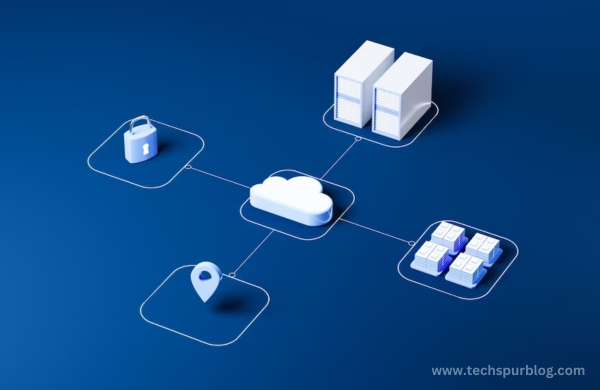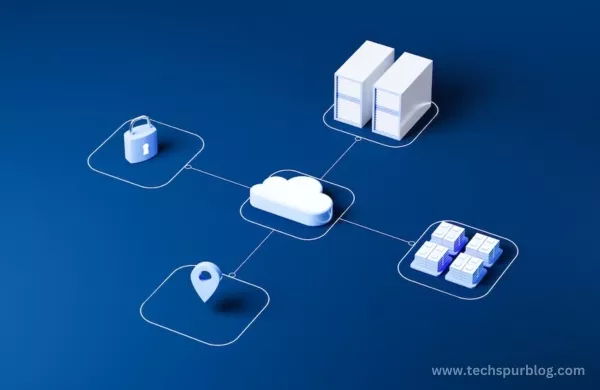
In the world of software development, Delphi has long stood as a powerful, versatile, and efficient programming language. Known for its robustness and flexibility, Delphi has been a go-to choice for developers seeking to create high-performance applications across a variety of platforms. One of Delphi’s most potent features is its ability to facilitate seamless and efficient database connections, a critical aspect in today’s data-driven landscape.
In this article, titled “Unlocking the Power of Delphi: Your Ultimate Guide to Database Connections”, we will delve into the depths of Delphi’s database connection capabilities. We’ll explore how Delphi enables developers to establish, manage, and optimize connections to a wide array of databases, from traditional SQL databases like MySQL and PostgreSQL to modern NoSQL databases and cloud platforms.
Whether you’re a seasoned Delphi developer or a novice just starting your journey, this guide aims to equip you with the knowledge and skills to harness the full power of Delphi database components.
Connecting to Different Databases
As we delve deeper into the realm of Delphi and its powerful database connectivity, it’s crucial to understand its versatility in connecting to various types of databases. In this section, titled “Connecting to Different Databases”, we will explore how Delphi’s robust Data Access Components can seamlessly integrate with a multitude of databases.
From traditional SQL databases like MySQL and PostgreSQL to modern NoSQL databases and cloud platforms, Delphi’s capabilities extend far and wide. We will provide an overview of these connections and step-by-step instructions on how to establish them. Whether you’re working with a single database type or navigating through a multi-database environment, this section will serve as your comprehensive guide to mastering Delphi’s database connections.

Connecting to MySQL with Delphi
Delphi provides a powerful library of components known as MySQL Data Access Components (MyDAC) that allows direct access to MySQL and MariaDB from Delphi and C++Builder, including Community Edition, as well as Lazarus (and Free Pascal) on Windows, Linux, macOS, iOS, and Android for both 32-bit and 64-bit platforms. Applications based on MyDAC can connect directly to MySQL server or work through the MySQL client library.
MyDAC is a complete replacement for standard MySQL connectors and presents an efficient alternative to the Borland Database Engine (BDE) and standard dbExpress driver for access to MySQL. It provides direct access to MySQL and MariaDB, enabling the development of database applications that are faster and easier to deploy and configure.
Here’s a simple example of how to create a MySQL connection using MyDAC:
- Setting up the connection: Create a TMyConnection component in your Delphi application. This component represents a connection to a MySQL database. You can create it by dragging and dropping the TMyConnection component from the tool palette onto your form.
- Configuring the connection: Set the properties of the TMyConnection component. The Server property should be set to the hostname or IP address of your MySQL server. The Port property should be set to the port number on which your MySQL server is listening (default is 3306). The Database property should be set to the name of your MySQL database. The Username and Password properties should be set to your MySQL username and password.
- Establishing the connection: Call the Connect method of the TMyConnection component to establish a connection to the MySQL database. You can do this when your form is created, or when the user performs an action that requires a database connection.
MyConnection1.Server := ‘localhost’;
MyConnection1.Port := 3306;
MyConnection1.Database := ‘mydatabase’;
MyConnection1.Username := ‘myusername’;
MyConnection1.Password := ‘mypassword’;
MyConnection1.Connect;
This will establish a connection to the MySQL database, and you can then use other MyDAC components to query the database and manipulate the data.
Also Read: VPS Hosting: Unlocking the Power of Virtualization for Optimal Performance
Connecting to SQL Server with Delphi
Delphi’s SQL Server Data Access Components (SDAC) is a powerful library that provides native connectivity to SQL Server. This library is compatible with Delphi, C++Builder (including Community Edition), Lazarus, and Free Pascal on various platforms such as Windows, Linux, macOS, iOS, and Android, supporting both 32-bit and 64-bit platforms. SDAC-based applications connect to SQL Server directly through OLE DB, a native SQL Server interface, making SDAC an efficient alternative to the Borland Database Engine (BDE) and standard dbExpress driver for SQL Server access.
Creating a SQL Server connection using SDAC follows the same steps as creating a MySQL connection using MyDAC. You would need to set up a TMSConnection component, configure its properties (like Server, Database, Username, and Password), and then call the Connect method to establish the connection.
For more advanced usage, such as using Direct Mode for TCP/IP connectivity without involving SQL Server Client, you can refer to the SDAC documentation. This resource provides a wealth of information on handling connection errors, working with unstable networks, and other advanced topics.
Connecting to Oracle with Delphi
Oracle Data Access Components (ODAC) is a library of components that provides native connectivity to Oracle from Delphi and C++Builder, including Community Edition, as well as Lazarus (and Free Pascal) on Windows, Linux, macOS, iOS, and Android for both 32-bit and 64-bit platforms. The ODAC library is designed to help programmers develop faster and more native Oracle database applications.
ODAC is a high-performance and feature-rich Oracle connectivity solution. It provides both possibilities of connection to Oracle through native Oracle data access and direct Oracle access from Delphi without Oracle Client. This makes ODAC an efficient native alternative to the Borland Database Engine (BDE) and standard dbExpress driver.
Creating an Oracle connection using ODAC is similar to creating a MySQL or SQL Server connection using MyDAC or SDAC. You would need to set up an TOraSession component, configure its properties, and then call the Connect method to establish the connection.
ODAC supports a wide range of Oracle-specific features, such as DML Arrays, REF cursors, Objects, Packages, Direct Path Loading, Alerts, Pipes, Change notifications, Advanced Queuing, Transparent Application Failover, and more. This makes it a versatile tool for any Delphi developer working with Oracle databases.
For more advanced usage, such as using Direct Mode for TCP/IP connectivity without involving Oracle Client, you can refer to the ODAC documentation. This resource provides a wealth of information on handling connection errors, working with unstable networks, and other advanced topics.
Also Read: Top 5 Popular Programming Languages and Their Uses
Other Delphi Database Solutions
Delphi offers a variety of database solutions that cater to different needs and requirements. Here are some of the key solutions:
FireDAC
FireDAC is a Universal Data Access library for developing applications for multiple devices, connected to enterprise databases. It provides a powerful, yet easy-to-use access layer that supports, abstracts, and simplifies data access, providing developers with full control without giving up simplicity and ease of use. FireDAC enables native high-speed direct access from Delphi to InterBase, SQLite, MySQL, SQL Server, Oracle, PostgreSQL, DB2, SQL Anywhere, Advantage DB, Firebird, Access, Informix, DataSnap and more.
FireDAC’s features include Local SQL, data change notifications, storage repository, batch operations, and more. It also provides comprehensive support for data manipulation operations and can execute queries and stored procedures, create tables, and perform other data management tasks.
Data Explorer
Data Explorer is a tool integrated into the Delphi IDE that allows developers to navigate database tables, views, stored procedures, and functions. It provides a visual interface for managing and manipulating relational databases. Data Explorer supports a wide range of databases, including InterBase, MySQL, Oracle, and SQL Server, among others.
FireDAC Local SQL
FireDAC Local SQL is a feature that allows developers to execute SQL commands across multiple in-memory and on-disk datasets. This includes datasets from TFDQuery, TFDJSONDataSets, TClientDataSet, and any other TDataSet descendant. This feature enables developers to run heterogeneous queries across multiple types of data sources, providing a high degree of flexibility when dealing with complex data scenarios.
InterBase
InterBase is a full-featured, high-performance, encryptable, multi-platform and scalable relational database for developers who are looking to embed a low-cost, zero-admin, lightweight database into their cross-platform applications. With its small footprint and robust feature set, InterBase is ideal for ISVs, OEMs, and VARs who need to embed a database into their applications. It supports standard SQL language, including stored procedures, triggers, and user-defined functions, and offers advanced features such as journaling, online dump, and point-in-time recovery.
These solutions offer a wide range of options for Delphi developers working with databases, each with its own strengths and ideal use cases. Whether you’re developing a small standalone application or a large enterprise system, Delphi has a database solution that can meet your needs.
Also Read: The Challenges Of Implementing Encryption For Data At Rest And In Motion
Conclusion
In this guide, we’ve explored Delphi’s database connectivity capabilities, including connections to MySQL, SQL Server, and Oracle using MyDAC, SDAC, and ODAC. We’ve also touched on FireDAC, Data Explorer, FireDAC Local SQL, and InterBase. Understanding these connections is crucial for efficient application development.
Devart’s Data Access Components, offering direct access to popular databases, are a powerful toolset for Delphi developers. We highly recommend exploring these components to enhance your software development capabilities and fully leverage Delphi’s database connectivity. Harness the power of Delphi and unlock your potential in database application development.

Leave a Reply